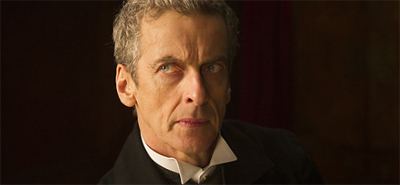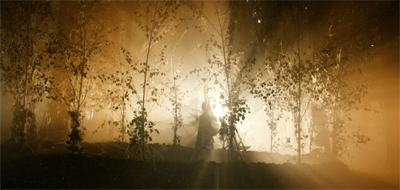“What was that?”
“To be fair, they cut out all the jokes.”
– the First Doctor and the Twelfth Doctor discuss the power of editting

Snow escape.
Twice Upon a Time bids farewell to Peter Capaldi, perhaps to Murray Gold, and to Steven Moffat.
It does all of this within the context of a holiday special, much like The End of Time, Part I and The End of Time, Part II bid farewell to David Tennant and Russell T. Davies with a two-part bonanza split across Christmas and New Year’s. In a way, this makes sense. Christmas is a time for indulgence, and these sorts of grand farewells lend themselves to a certain sense of self-congratulations and celebration. Davies went bigger and bolder for The End of Time, Part I and The End of Time, Part II, opting for a cameo-stuffed blockbuster affair, his style turned to eleven.

Cooler heads prevail.
Twice Upon a Time does something similar, albeit in the style of Steven Moffat. Davies tended to jump from set piece to set piece with his bombastic Christmas specials like The Runaway Bride and Voyage of the Damned, with only the thinnest of plots holding them together. Moffat’s Christmas specials like A Christmas Carol or The Husbands of River Song have set pieces, but they often feel incidental to the characters and dialogue. Twice Upon a Time is a collection of witty banter and wry observations held together by a plot that even the Doctor has to admit does not exist.
In some ways, this feels like an appropriate way to bid farewell to Steven Moffat’s tenure as showrunner on Doctor Who, to draw down the curtain on an impressive and momentous six seasons (and almost eight years) that radically redefined what the programme could (and even should) be. Twice Upon a Time is a Christmas indulgence, but one that feels earned. It is an adventure that doesn’t really need to exist, and one which accepts that premise as its starting point. It is an episode dancing around the inevitable. It is not especially graceful, but is charming nevertheless.

The Twelfth Day of Christmas.
Filed under: Television | Tagged: christmas, coda, doctor who, peter capaldi, postscript, regeneration, steven moffat, the first doctor, twice upon a time | 8 Comments »







































